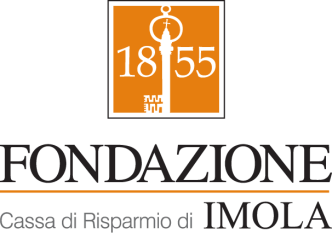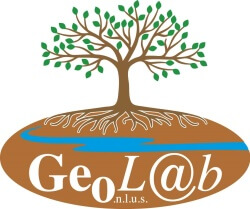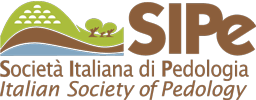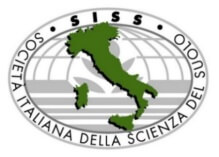SOLID WASTE MANAGEMENT FOR SURFACE WATER QUALITY PROTECTION
DOI:
https://doi.org/10.6092/issn.2281-4485/7886Keywords:
environment, landfill, surface water quality, waste disposalAbstract
Maintaining a good surface water quality is a challenge for our environment. There are many factors that influence surface water quality and each of them needs to be thoroughly investigated. Amongst many, landfills are representing a major threat as a result of the increased waste generation, mainly due to urbanization and the continuous development. In Kosovo, there are still remains of old municipality damp sites, constructed regional sanitary landfills as well as illegal waste disposal sites. There are also industrial waste disposal sites, agricultural waste and demolition wastes, too. This study aims at the evaluation of the waste generation and characteristics of waste in Kosovo based on the published information. The combination of methods was used to present the solid waste management for the surface water quality protection. Existing data on waste in Kosovo and the data collected from the literature review will be the basis for this research. Followed by the generated waste projection, the impacts of the landfills on the surface water quality will be analyzed. Based on the data presented, measures for the protection of surface waters and the use of best management techniques to minimize solid waste impacts were presented. Also, waste management options to optimize and reduce waste generation were given in the conclusion.
References
ALEMAYEHU, T., (2001). The Impact of Uncontrolled Waste Disposal on Surface Water Quality in Addis Abbaba, Ethiopia. Ethiopian Journal of Science, 24, p. 93-104. http://dx.doi.org/10.4314/sinet.v24i1.18177
ASASE, M., YANFUL, E.K., MENSAH, M., STANFORD, J., AMPONSAH, S., (2009). Comparison of Municipal Solid Waste Management Systems in Canada and Ghana: A Case Study of the Cities of London, Ontario and Kumasi, Ghana. Journal of Waste Management, 29: 2779-2786.
DOI: 10.1016/j.wasman.2009.06.019.
CLARK, J., (1996). Rivers and their Catchments: Impacts of Landfill on Water Quality (Information and advisory note) Earth sciences Branch. Scottish Natural Heritage, Edinburgh http://www.snh.org.uk/publications/on-line/advisorynotes/39/39.htm
EKERE, W., MUGISHA, J., DRAKE, L., (2009). Factors Influencing Waste Separation and Utilization among Householdsin the Lake VictoriaCrescent, Uganda. Journal of Waste Management, 29 (12):3047-3051. DOI: 10.1016/j.wasman.2009.08.001.
EL-SALAM, M. M. ABD., ABU-ZUID, G.I. (2015). Impacts of Landfill Leachate on the Groundwater Quality: A Case Study in Egypt. Journal of Advanced Research, 6(4): 579-586. DOI: 10.1016/j.jare.2014.02.003
GUERRERO, L.A., MAAS, G., HOGLAND, W., (2013). Solid Waste Mangement challenges for Cities in Developing Countries. Waste Management, 33 (1):220-232. DOI: 10.1016/j.wasman.2012.09.008.
HANC, A., NOVAK, P., DVORAK, M., HABART, J., SVEHLA, P. (2011). Composition and Parametrs of Houusehold Bio-Waste in Four Seasons. Waste Management Journal. 31(7): 1450-60.
DOI:10.1016/j.wasman.2011.02.016.
HOLT, M. S. (2000). Sources of Chemical Contaminants and Routes into the Fresh Water Environment. Food and Chemical Toxicology. An International Journal, 38 (1). p21-27. DOI:10.1016/S0278-6915(99)00136-2
HOSSAIN, L., DAS, S. R., HOSSAIN, M., (2014). Impact of Landfill Leachate on Surface and Grounwater Quality. Journal of Environmental Science and Technology, 7: 337-346. DOI: 10.3923/jest.2014.337.346
Law on Waste. Law No.04/L-060. (2012). Kosovo Assembly. Republic of Kosovo
MARKANDYA, A., (2006). Water Quality Issues in Developing Countries. In Lopez, R., Toman, MA., (eds.). Economic Development and Environmental Sustainability. New Policy Options. Oxford University Press. New York, p. 307-344. DOI: 10.1093/0199298009.001.0001
MARQUEZ, RFPV., DA SILVA, A., RODRIGUES, L., COELHO, G., (2012). Impacts of Urban Solid Waste Disposal on the Quality of Surface Water in three Cities of Minas Gerais-Brazil. Agricultural Engineering, 36(6)
http://dx.doi.org/10.1590/S1413-70542012000600010
MIEZAH, K., OBIRI-DANSO, K., KADAR, Z., FEI-BAFFOE, B., MENSAH, M., (2015). Municipal Solid Waste Characterisation an Quantification as a Measure Towards Effective Waste Management in Ghana. Waste Management Journal, 46:15-27. DOI: https://doi.org/10.1016/j.wasman.2015.09.009
Municipal Waste Survey, MSW 2015. (2016). Series 2: Agriculture and Environment Series. Kosovo Agency of Statistics.
NABEGU, A. (2017). An Analyses of Municipal Solid Waste in Kano Metropolis. Nigeria. Journal of Human Ecology, 31 (2): 111-119. Doi: https://doi.org/10.1080/09709274.2010.11906301
NAGABOOSHNAM, J. K., (2011). Solid Waste Generation and Composition in Gaborone, Botswana, Potential for Resorce Recovery. Master Thesis. Energy and Environmental Engineeing, Linkoping University, Sweden. https://www.diva-portal.org/smash/get/diva2:488964/FULLTEXT01.pdf
OKOT-OKMU, J., (2012). Solid Waste Mangement in African Cities-East Africa. Waste Management - An Integrated Vison. In tech. DOI: 10.5772/50241. http://www.intechopen.com/books/waste-management-an-integrated-vision/solid-waste-management-in-african-cities-east-africa>.
Raport per Gjendjen e Ujerave ne Republiken e Kosoves. (2015). Agjensioni per Mbrojtjen e Mjedisit te Kosoves. Ministria e Mjedisit dhe Planifikimit Hapesinor.
https://www.ammk-rks.net/repository/docs/Raporti_i_ujrave_i_2015_shqip_(2).pdf
SAJAUDDIN, M., HUDA, M.S., RAFIQUL HOQUE, A.T.M., (2008).Household Solid Waste Characteristics and Mangement in Chittagong, Bangladesh. Journal of Waste Management, 28 (9):1688-95. DOI:10.1016/j.wasman.2007.06.013
The State of Waste in Kosovo 2008, Report (2009). Kosovo Environmental Protection Agency. Ministry of Environment and Spatial Planning.
UMAR, M., AZIZI, H., YOUSOFF, M., (2010). Variability of Parameters Involved in Leachate Pollution Index and Determination of LPI from Four Landfills in Malaysia. International Journal of Chemical Engineering, Volume 2010, article ID 747953, DOI: 10.1155/2010/747953
Downloads
Published
How to Cite
Issue
Section
License
Copyright (c) 2018 Laura Kusari
Copyrights and publishing rights of all the texts on this journal belong to the respective authors without restrictions.
Articles published since 2020 are licensed under a Creative Commons Attribution 4.0 International License:
Previous articles are licensed under a Creative Commons Attribution-NonCommercial 3.0 Unported License:











